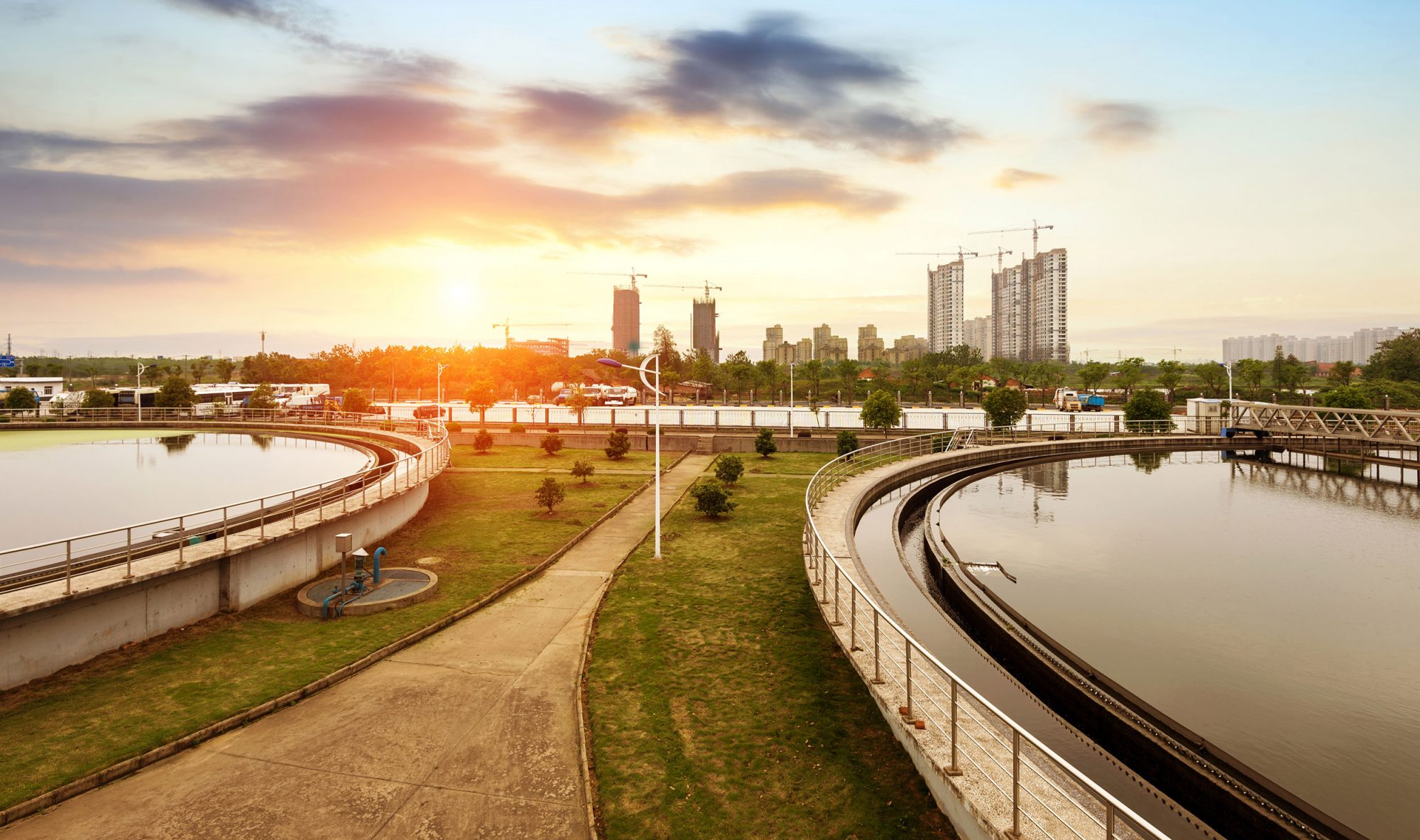Waste recycling is a mainstay of waste disposal, particularly in Germany (approx. 20 million tonnes), Austria and Switzerland (approx. 5.5 million tonnes). Waste treatment makes a decisive contribution to the protection of resources. For example, by returning recyclable metals to the material cycle and by using mineral waste as a building material. Waste treatment also makes an important contribution to the generation of electricity and heat in the course of thermal waste treatment. In this context, filter presses are used as solid/liquid separation units, for example in chemical-physical treatment plants for hazardous waste disposal and in waste incineration plants and (coal) power plants for flue gas cleaning and flue gas desulphurisation.
HAZARDOUS WASTE DISPOSAL
In hazardous waste disposal, the processing of specific waste materials in closed reaction containers is essentially carried out by sedimentation, neutralisation, reduction, oxidation and/or precipitation. Organic, acidic and basic liquid wastes, but also inorganic acids and alkalis as well as other concentrates (e.g. thin sludge, landfill leachate or thin acids from combined heat and power plants) are neutralised and further treated depending on their composition. During conversion, pollutants such as heavy metals, chromates or cyanides are removed or immobilised and separated. The resulting sludge is then fed to a filter press and filtered, dewatered and properly disposed of with the aim of a solids-free filtrate and a puncture-proof filter cake. In a further step, the organically contaminated filtrate produced by the solid-liquid filtration is purified via activated carbon. The treated waste water is then discharged into the sewer system damage-free in accordance with the respective limit values (see Waste water Treatment). The dewatered filter cakes are temporarily stored and reused as bulk material, IBC containers or drums.
FLUE GAS CLEANING/FLUE GAS DESULPHURISATION
Solid residues from a waste incineration plant, for example, include ash and slag from waste incineration, as well as waste from flue gas cleaning, waste water treatment and filter dust. The flue gas produced during the incineration of residual waste is enriched with a wide variety of particulate and gaseous pollutants. The cleaning of flue gas as a wet process takes place in a multi-stage washing process. This serves as a process stage for the reduction of pollutants such as HCl, SO2, NOx, HF and heavy metals including Hg and organic compounds (dioxins and furans), with the aim of reducing environmental pollution. In the process water treatment plant, the washing solution from the wet scrubber is treated by alkalisation, neutralisation, precipitation, flocculation and sedimentation depending on the process.
The sludge produced in the individual processes is separated from the sedimented solids in a filter press with the aim of producing a solids-free filtrate and a solid filter cake. Depending on the application, the filter cake is dewatered to the maximum solids content in the filter cake required to comply with the classification values of the Landfill Ordinance. Subsequently, it is disposed of at the appropriate landfills. In the subsequent evaporation plants, the resulting clear filtrate is saturated, conditioned and returned to the process cycle.
THE PARTNERSHIP WITH MSE FILTERPRESSEN® GUARANTEES THE SUCCESSFUL IMPLEMENTATION OF YOUR PROJECT
Due to the high degree of dewatering required, membrane filter presses with an included squeezing option are preferred, e.g. for flue gas cleaning and hazardous waste disposal. MSE chamber filter presses and membrane filter presses offer high filtration rates and the best possible filtration results as well as outstanding dewatering results with their design-typical features and the waste water and proven membrane filter plate and cloth technologies for various applications. For fast cycles and the associated high capacities, MSE filter presses are available in a fully automatic design. Here, efficiently designed process parameters, especially from an economic point of view, are of great importance. Our products contribute to increased filtration process productivity with their solid, robust and high-quality architecture which is well-known in the marketplace.


